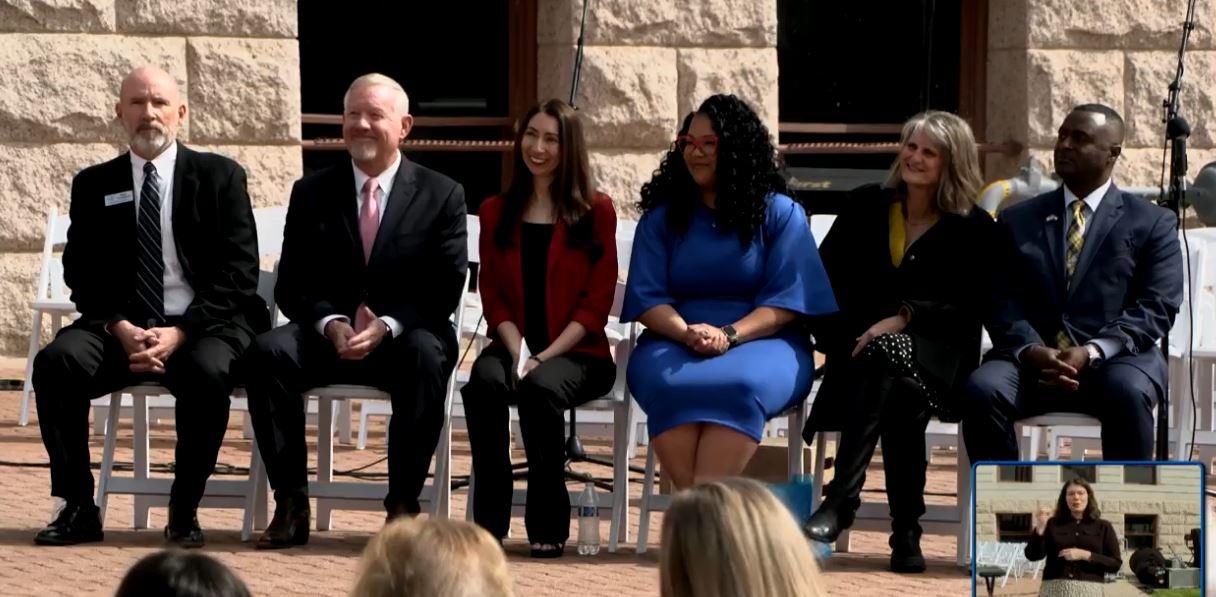
 Fluoride has been added to municipal water systems since the 1940s. The practice has been widely shown in numerous medical studies to reduce tooth decay in people from all walks of life, regardless of economic or ethnic background. On Wednesday, Denver Water will decide whether to continue adding fluoride to the drinking water of its 1.3 million customers.
Fluoride has been added to municipal water systems since the 1940s. The practice has been widely shown in numerous medical studies to reduce tooth decay in people from all walks of life, regardless of economic or ethnic background. On Wednesday, Denver Water will decide whether to continue adding fluoride to the drinking water of its 1.3 million customers.
The state's largest water utility adds enough fluoride at its treatment plants to meet a target level recommended by public health officials of 0.7 milligrams per liter. That amounts to less than a drop per 55 gallons of water. But even that amount is too much for opponents of fluoridation, who believe that fluoride's risks far outweigh its benefits and who don't want to be forced to consume it.
"We don't want it in there," said nutritionist Greg Gillette, who produces an Internet show from his bedroom in a Denver apartment. "You could say it's like pouring Vitamin C in the water. It may help, but maybe I don't want it in there."

 Gillette is a part of the push to drop fluoride that includes local group We Are Change Colorado, and the national Fluoride Action Network, a non-profit based in Binghamton, New York. He said there are plenty of places, other than the community water supply, to get fluoride.
Gillette is a part of the push to drop fluoride that includes local group We Are Change Colorado, and the national Fluoride Action Network, a non-profit based in Binghamton, New York. He said there are plenty of places, other than the community water supply, to get fluoride.
"Go buy fluoridated toothpaste," he said. "You can get fluoridated water at big stores, fluoridated tablets. We just don't want it mass produced for everyone."
The Fluoride Action Network's director, Paul Connett, a retired chemistry professor, calls public water fluoridation a "sham," and says a variety of studies, mostly international, show fluoride can damage bones, the brain, thyroid function and is linked to arthritis.
"If it was so clear cut, why do so few countries actually fluoridate their water?" Connett asked, claiming that more than 200 cities across the world, including Snowmass and Montrose in Colorado, have rejected fluoride.

 Public health officials in Colorado say that in many parts of the world people can get fluoride in other ways. For example, in some countries, salt is fluoridated. Many European countries have school-based health care where dentists apply fluoride to children's teeth. The World Health Organization encourages the use of fluoride, especially to "disadvantaged and under-served population groups" -- though it says too much of it can lead to unwanted health effects.
Public health officials in Colorado say that in many parts of the world people can get fluoride in other ways. For example, in some countries, salt is fluoridated. Many European countries have school-based health care where dentists apply fluoride to children's teeth. The World Health Organization encourages the use of fluoride, especially to "disadvantaged and under-served population groups" -- though it says too much of it can lead to unwanted health effects.
Connett calls public health officials who back fluoridation in the U.S. "propagandists" who treat opponents as "the crazies, the John Birchers, the Dr. Strangelove and so on."
Colorado's chief medical officer, Dr. Larry Wolk, a pediatrician, likens the fluoride debate to the contentious public health fight over vaccines. He and Gov. John Hickenlooper recently issued a joint statement saying community water fluoridation is a "safe, effective and inexpensive method" to improve oral health. Wolk said the board should look at the evidence "and not to speculation, or to rumor or to fear."
By the numbers
The Denver Water board received more than 1,000 public comments on fluoride. Here's how they break down, according to the utility:
- Number of comments in favor of fluoridation: 101
- Organizations in favor of fluoridation:
Denver Public Health Department
Denver Health
Denver Environmental Health
Tri-County Health Department (Adams, Arapahoe, Douglas)
Jefferson County Public Health
Colorado Department of Public Health and Environment
Colorado Dental Association
American Dental Association
Colorado Academy of Pediatric Dentistry
Colorado Medical Society
Colorado Academy of Family Physicians
Deans of the University of Colorado Dental, Medical and Public Health Schools
Various community organizations
- Number of comments opposed to fluoridation: 1,078
- Organizations opposed to fluoridation:
Fluoride Action Network
New York State Coalition Opposed to Fluoridation
Concerned Residents of Peel to End Fluoridation
We Are Change Colorado








